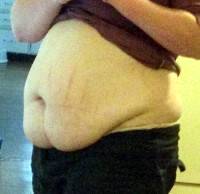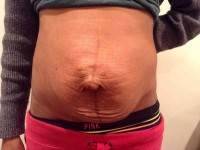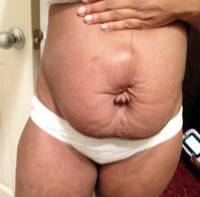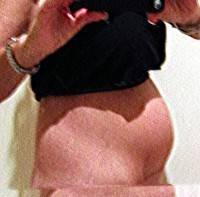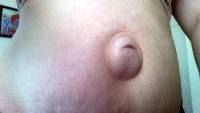Tummy tuck without muscle repair
Tummy tuck with or without muscle repair
Virtually everyone who has had kids needs some muscle tightening with their tummy tuck.
If not done, they won’t get the flat tight abdomen they really want. Just stitching the loose muscles up adds a little pain but doesn’t make the surgery more invasive or dangerous. (Richard P. Rand, MD, FACS, Seattle Plastic Surgeon)
Muscle tightening in a tummy tuck dangerous?
No it’s not dangerous if done expertly, however, over-tighening the muscle or tightening it at all when there is already elevated intra-abdominal pressure can compress the vena cava enough to encourage blood clots in the legs. There are some (huge) patients that we do not tighten the muscles on just for that reason. This should be the surgeon’s call, not yours. You have nothing to fear in the hands of a very experinced Board Certified Plastic Surgeon. (Lawrence Foster, MD, Sacramento Plastic Surgeon)
Muscle repair usually best with tummy tuck
Since a tummy tuck is most often done because of changes following pregnancy, repair of a muscle separation is an important part of the plan more often than not. However, it does affect your recovery.
If you don’t need it then your return to normal activities will be sooner, but the decision should be based on whether you have the muscle separation. (Richard Baxter, MD, Seattle Plastic Surgeon)
Tummy tuck should include muscle repair (plication) most of the time
I perform abdominoplasties (tummy tucks) every week and cannot think of a single case that did not require muscle plication or “tightening”. This is an important component of the procedure and without this the result is markedly diminished. This does not make it more invasive or dangerous at all. (James F. Boynton, MD, FACS, Houston Plastic Surgeon)
Tummy tuck with or without muscle repair, risk is the same
Muscle repair does not make a tummy tuck more invasive or in general increase the risk, though after muscle plication your recovery might be a bit more of a challenge. Don’t hold off, if the repair is needed. (Peter E. Johnson, MD, Chicago Plastic Surgeon)
Tummy tuck muscle repair safety
I am not sure that having an abdominoplasty without the rectus plication step is technically less invasive. The incisions will be the same, the exposure of the abdomen will be the same, etc. I do not think that there are any medical risks that are avoided by not performing that step of the surgery. There are consequences, good and bad, of having the rectus plication. It typically improves the lateral and anterior abdominal contour and tightens the abdomen if it is weak. By putting sutures into the abdominal wall fascia, there is some more discomfort immediately post op.
I have also had patients say that it has resulted in a restriction in how much they can eat before feeling full, which could be a good or a bad thing I suppose. If your surgeon feels that you a candidate for muscle repair, I think that the benefits far outweigh any risks that may be involved. (William T. Stoeckel, MD, Raleigh-Durham Plastic Surgeon)
Does a Tummy Tuck Without Muscle Repair Make It Less Invasive or Dangerous?
If you are having a full tummy tuck and do not need a muscle repair, there will be less discomfort after the surgery and the recovery will be faster. Since the procedure is not really a dangerous one, I would not say that it is necessarily less dangerous. Although we tighten the muscle fascia, we do not cut through the muscles or the fascia, so the muscle repair is not really more invasive.
We do not dissect down to any area that is not already exposed by the tummy tuck without the muscle repair. If the muscle repair is not needed, don’t do it. If protrusion of the tummy is partially due to the muscle and fascial stretching (for example, from pregnancy) and you do not repair it, you may be disappointed with your result. (Robert M. Grenley, MD, Seattle Plastic Surgeon)
Muscle repair and safety in tummy tuck??
I am not sure that there is any safety difference, but it is less invasive in that it involves only the more superficial skin and fat of the abdomen, and not the abdominal wall. Often there is not as much discomfort to you, the patient, if the abdominal wall is not tightened, and the recovery period may be shorter. But if the abdominal wall anatomy contributes to your decision to consider this surgery, discuss at length with your surgeon the advantages and disadvantages of tightening the abdominal wall before deciding. If you have a skin only procedure and don’t like the result, you may find yourself back in surgery. (Jourdan Gottlieb, MD, Seattle Plastic Surgeon)
